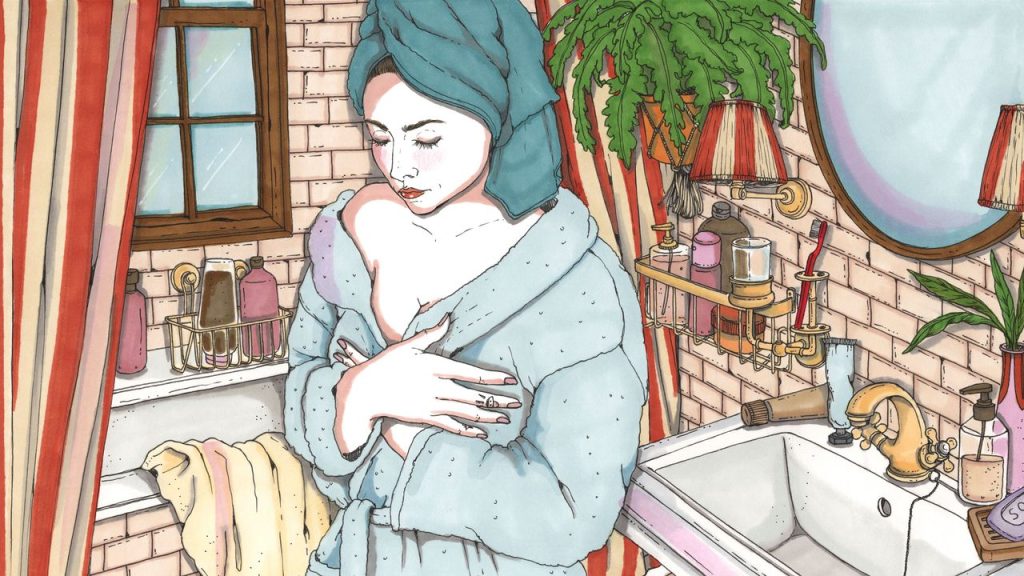Welcome back to Learning Curve, where we take a deep dive into the ongoing journey of body acceptance in a world that often promotes unrealistic beauty ideals. In this edition, I—Nicola—explore my tumultuous relationship with plastic surgery, a connection that saw a dramatic shift after I underwent a procedure myself. For years, I maintained a cautious distance from cosmetic enhancements, viewing them as a superficial shortcut, particularly in a workplace that thrives on beauty standards. The very concept of altering one’s body felt fundamentally contradictory to the message of self-acceptance that I advocate. After all, embracing our natural “flaws” seemed like a more authentic route to confidence than opting for a surgical solution. Yet, feelings about body image can shift unexpectedly, and I found myself standing on the opposite side of the argument after experiencing elective surgery firsthand.
Initially, my disdain for plastic surgery stemmed from a belief that it epitomized a societal failure to accept real bodies. I viewed the cosmetic surgery industry as a purveyor of unattainable ideals, promoting the idea that if someone was dissatisfied with their appearance, the answer lay in going under the knife rather than learning to embrace one’s true self. Surgery, to me, appeared to reinforce a culture that deemed natural bodies inadequate. Facing the pressures of a beauty-driven world, the notion that people might take the easier route of altering their bodies rather than confronting their insecurities left me feeling frustrated. I felt secure in my stance—until I found myself surrendering to a procedure I never thought I would consider, leading me to rethink everything I thought I knew about plastic surgery.
There I was, lying on an operating table—my anxieties intermingling with the anesthesia that was about to whisk me off to sleep—preparing to undergo breast reduction surgery. In the moments leading up to this, I grappled with feelings of guilt for supposedly “cheating” my way to body acceptance. Yet, as I drifted into unconsciousness, I realized that there was more at play than my previous narrative of defiance against cosmetic alterations. This procedure represented a pivotal moment for me, not because it conformed to societal pressures, but because it reflected a personal choice made in the pursuit of comfort, confidence, and ultimately, self-love.
In retrospect, I can see that my beliefs weren’t merely a confident rejection of vanity but were also intertwined with layers of insecurity. My apprehension about cosmetic enhancements masked deeper issues associated with my self-image and identity. I have always had my share of insecurities regarding my body, particularly concerning the asymmetry of my breasts. Growing up, these nuances seemed minor, perhaps even relatable; after all, many people share such experiences, and until recently, I had not found them to warrant any serious concern. However, as I transitioned into my thirties, the asymmetry became pronounced—a significant two-cup difference that began to weigh heavily on my self-esteem.
The subsequent wave of insecurity caused by this physical change had a profound impact on my life. I found myself shying away from certain clothing choices, avoiding swimsuits, and spending time in front of the mirror critiquing every asymmetrical curve. It was exhausting to constantly scrutinize my appearance through the lens of society’s standards. I realized that my prior stance against surgery was not synonymous with a strong self-acceptance, but rather, it was an attempt to mask my own insecurities and project confidence. Now, following my surgery, I can see how easy it can be to conflate self-acceptance with resisting the allure of cosmetic procedures.
Emerging from the experience of my breast reduction surgery, I no longer feel that I have “cheated” the system. Rather, I’ve gained not just a physical transformation but the ability to embrace my appearance with renewed appreciation. There is a newfound sense of freedom in wearing clothes I once avoided and a burgeoning confidence in my body that wasn’t there before. Ultimately, this transformation has illuminated a vital truth: the path to self-acceptance is not linear, and it can vary greatly from person to person. Just because my journey included a surgical intervention doesn’t diminish the authenticity of my self-acceptance; it merely reflects the complex nature of body image and personal choice in a world laden with expectations.
While I recognize that my experience with plastic surgery might not resonate with everyone, it highlights the need for empathy and understanding towards individual journeys. Body image is deeply personal and while some may find solace in embracing their imperfections, others may seek change as a way to rediscover their confidence. We need to create a space where these different experiences are validated rather than judged. Ultimately, whether we choose surgery or self-acceptance through another path, what matters most is that we respect our bodies and recognize our unique experiences. Understanding the multifaceted nature of self-love invites us to reject the traditional criticisms often levied at those who decide to make changes, allowing for a rich discussion about autonomy and beauty in its many forms.

